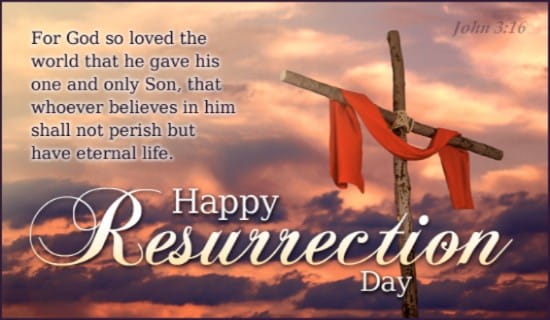Just wanted to share a couple thoughts to update the thread:
1. Pope Benedict Breaks His Silence
A new essay from Pope Emeritus Benedict XVI explores the nature of the Church's current sexual abuse crisis. Here is the full text.

www.catholicnewsagency.com
Pope Benedict shared an essay last week offering his experience with the abuse crisis, following the summit in Rome last February. He points to a convergence of three phenomena that coincided in the 1960s: 1) the sexual revolution, especially in Europe; 2) the changes to Vatican II and the lowered standards for the formation of priests; and 3) the abandonment by mainstream Catholic theologians of St. Thomas Aquinas' natural law, in favor of relativism. When the crisis reached its crescendo in the 80s, Pope Benedict was the leader of a group formally known as the Congregation for the Doctrine of the Faith (CDF), which is a euphemism for what it really is - the Roman Inquisition. Because the abuse cases became so numerous and were taking so long to resolve, the Vatican began assigning some of the proceedings to the CDF. Benedict says the Church's canon law leaned too heavily in the direction of protecting the accused. This is of course a hallmark of Western law, but he feared (appropriately as the head of the CDF) that it did not sufficiently prioritize protecting the Faith. This is both the salvific Faith of the Church with its mission offering reconciliation to the world, as well as the Faith of individual believers, especially those who were victimized by the crisis.
The essay ends with a call to create habitats of faith, safe havens where we can allow Jesus to enter into our lives.
2. Pete Buttigieg's last gasp of American Protestantism
He has zero appeal to religious conservatives because he holds to the Democratic party line on the right to kill viable, living unborn babies.

www.nationalreview.com
A lot of publications have been talking about the South Bend mayor in the recent news media cycle. What's striking is that they are talking about him within the context of
religion. I honestly believe this is to counterbalance how alienating the current trajectory of Democrat policy has become. Earlier this year,
a poll found more Americans were beginning to shift their views on abortion, in light of the radical late-term abortion legislation popping up around the country. It seems the media see Buttigieg as a means of alleviating hesitancy by blue collar, working class districts, or at least the
idea of a Buttigieg to provide a veneer to party.
His statements embody a diluted Christianity tethered to the idea of a merciful Jesus, but ultimately leaves the final say on morality up to the individual, not Christ. This is not biblical. From the beginning of Genesis, God promulgates rules to bring us into a closer relationship with him, which human beings reject because they cannot fully appreciate or understand, or at least find difficult to live up to. I suspect a lot of Americans sympathize with his perspective - it's the hallmark of mainline American protestantism. And it isn't sustainable - mainline protestantism is the most rapidly deteriorating subgroup in American life. Meanwhile, Catholics are seeing a rise in traditional Latin Mass parishes, in which parishioners, almost down to the last one, fully embrace the orthodox teachings of the Church. It'll be interesting to see if his rhetoric finds purchase as we head into debates and early primaries.
3. "What is Truth?"
I've been reading Pope Benedict's
Jesus of Nazareth, Volume 2: Holy Week for Lent. In the first volume, he hints that he will ultimately propose a troubling thesis, that modern man is no longer capable of understanding the significance of the Crucifixion. He finally delivers this idea in Chapter Seven, the Trial of Jesus, in part 3, Jesus before PIlate, when Christ tells Pilate he came to testify to truth, and everyone on the side of truth listens to him. Pilate enigmatically asks, "What is Truth?" Benedict responds:
It is the question that is also asked by modern political theory: Can politics accept truth as a structural category? Or must truth, as something unattainable, be relegated to the subjective sphere, its place taken by an attempt to build peace and justice using whatever instruments are available to power? By relying on truth, does not politics, in view of the impossibility of attaining consensus on truth, make itself a tool of particular traditions that in reality are merely forms of holding on to power?
Pilate, as representative of the state, is not capable of understanding genuine, objective Truth. In politics, we proceed under the assumption that neither side can agree to the truth. Politicking is the means by which we mediate from a dispute on truth towards a consensus/concession that both sides can ultimately live with.
Of course, the danger comes when we embrace
ideology, when we convince ourselves of the lie that
our side is the exclusive custodian of the truth, across all issues. I like to think that when I was zealously Democrat, I must have understood, even on a subconscious level, that this was a lie. I don't have a party anymore, and I try not to pretend that I have it all figured out. I try to listen to anyone who has good evidence and logical conclusions, to help better shape my own opinions.
We recently had a thread in Politics where Arkage proposed an exclusively human understanding of Jesus. Arkage is what I call one of "the usual suspects" - dogmatically Democrat across the board, up and down on every issue. It's no surprise that he falls into Benedict's stereotype. He's not capable of listening to Jesus' words outside of their political implications. And it takes him to a place that is far removed from the message of the Gospel.
4. Holy Week
This is the end of Lent. I've struggled, suffered, and I've failed, but I hope I somehow come out of it having grown. I hope everyone has an incredible Easter, and that we each progress on our faith journey through the rest of the year.







